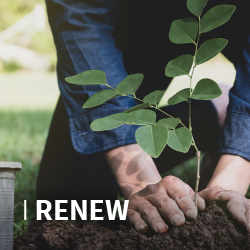Fondaction and Fonds are joining forces to support Waste Robotics, an environmental technology startup that specializes in AI intelligence, the companies announced on March 17. The aim of the joint investment is to help Waste Robotics further develop and commercialize its AI sorting software.
Launched in 2016, Quebec-based Waste Robotics develops software solutions for recyclable material recognition and robotic extraction. The company designed three types of “sorting robots” that use optical material recognition technology to examine, sort, and extract materials. The first (WR-1) identifies bags containing organic material, the second (WR-2) deals with construction materials, and the third (WR-3) sorts paper, cardboard, glass, aluminum, and plastic.
When material arrives on the belt, several types of cameras and sensors begin examining the materials. An artificial intelligence processing system—the brain of the robot—receives images from the cameras and sensors and then recognizes and identifies the recyclable material. It sends orders to the robot arm to pick up the item and remove it from the line. “We don’t make cameras or robots,” says Éric Camirand, co-founder and CEO of Waste Robotics. “We make the software in between to recognize materials and dispatch orders to pick up those materials.”

Camirand notes Fondaction’s investment will help Waste Robotics accelerate its developments and support the company’s program, Sorting as a Service (SaaS). The program provides Waste Robotics customers with intelligent robotic sorting systems and installs them on site. “The client doesn’t need to invest any money besides signing up for a service contract,” Camirand says. “The machine belongs to [Waste Robotics] so we maintain it, upgrade it, and tweak it all the time.”
Waste Robotics’ bag sorting system, WR-1, is already being used by facilities in Quebec City, Quebec and Minneapolis, Minn. First, people place organic matter for composting in designated bags. The bags are provided to citizens in Europe for free and to those in the U.S. who choose to opt-in to composting programs. These bags can go in the same bin as the resident’s waste. Once those bags are hauled, loaded, and placed on a sorting belt, the robots get to work identifying and picking out the bags for composting. The client can decide what kind of bags to provide, they just need to be robust and distinct color. “If it can be picked by the human it can be picked by a robot,” says Camirand.
While sorting material for recycling is an essential task to further the circular economy and divert recyclables from landfills, COVID-19 has made it a risker job for humans. Robots could help fill that gap and don’t run the risk of getting tired. According to the release, Waste Robotics’ technology can increase the yield, recovery rate, and quality of recycled materials so it can better compete with virgin materials on the market. “Humans will get tired after several hours so a lot of recyclable material may just go by, but the robot will never get tired. It will perform in a constant manner.”
Second- and third-generation robots have already come to the market with projects in Atlanta, Ga. and the south of Paris, France. The project in Atlanta involves a construction and demolition debris robot, WR-2, so it will sort wood, bricks, and other debris. The robot on the way to Paris is a WR-3, so it will handle sorting and identifying recyclable materials. “Waste Robotics develops tailored solutions for what the client needs,” says Camirand.
Learn how current and future technologies are impacting the recycling industry by attending Advanced Processing Technologies, a session that will be held at ISRI2021, ISRI’s virtual convention, from 4:15 p.m. to 5:00 p.m. EDT on Tuesday, April 27. Click here to register for ISRI2021.
Images courtesy of Waste Robotics.













